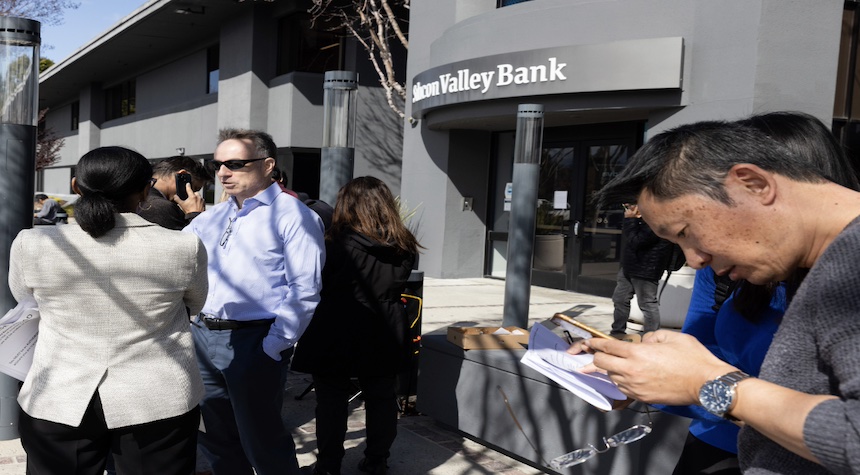Moody’s put out a warning with its latest forecast on the United States’ economic future in a new report Friday: get the out-of-control spending under control in Washington, D.C., by any means necessary — or the nation will lose its stellar credit rating.
The outlook on the credit rating of the United States was changed to “negative” from “stable” on Friday by the rating firm Moody’s, which pointed to the nation’s worsening fiscal position and political polarization as long-term concerns for America’s economy.[…]
Moody’s said on Friday that the United States’ fiscal crisis was not likely to be resolved in an immediate manner.

Moody’s stated in a press release that “in the context of rising interest rates and without effective fiscal policies to reduce government expenditure or increase revenues, Moody’s anticipates that the U.S.’s fiscal deficits remain very large – significantly reducing debt affordability.” The risk of successive governments not being able to agree on a fiscal plan that will slow down the decline in debt affordability is increased by the continued political polarization among the U.S. Congress.
You can see that they place equal importance on increasing revenues as a way to solve Washington’s fiscal issues. The New York Times reports that because that is President Joe Biden’s and the Democrat’s preferred solution, this will be a “political issue” in 2024.

…. It could pose a problem for President Biden who has been attacked by Republicans because of his handling of the economy and America’s deficit budget. Republicans are pushing for drastic spending cuts in order to reduce the difference between America’s tax revenues and its expenditures. Mr. Biden proposed that future deficits could be reduced by increasing the economy and taxing high-earners and corporations.
There is one silver lining in the report: we are still rated highest (for now).
Moody’s declined to lower the rating due to the “formidable” credit strength of the United States. It noted the resilience of America’s economy, the strength, and stability of its economic institutions, as well as the role the dollar plays in the world’s currency reserve.

As we reported in August, Fitch downgraded the U.S. credit rating from “AAA” to “AA+” due to a combination of factors, as my colleague wrote:
Fiscal concerns, a decline in governance, polarization in politics, as reflected by the Capitol Riot of Jan. 6, and repeated debt ceiling negotiations at the last minute threatened the government’s ability to pay its bills.


